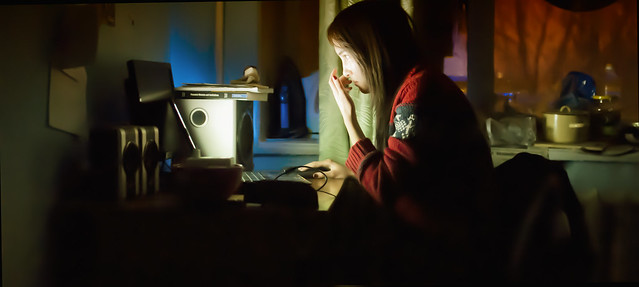The Evolution of Social Media
Before diving into any thought piece about social media and marketing, I have to consider that my life has been shaped by the Internet. Growing up in the 2000s has deeply impacted the way I process information, how I communicate and the general speed of my life. I won’t pretend to know whether this was a positive influence or a negative one (probably both at different times), but at the very least I can give credit where credit is due: the Internet consumes an embarrassing fraction of my time, and therefore, my life. It can be a place of great vulnerability and a place of great fabrication. Understanding this, I’d like to explain how I think social media has transformed into the primary platform for modern marketing, whether business or personal.
I first got a Facebook account when I was in middle school (no Myspace or Tumblr for me), and it opened up a whole new way to stay connected to my friends. Social pillars rose and fell by messages, likes, and whether or not someone poked you back. It was closer to high school when I became aware of conversations about cyber-bullying. I remember sitting in the Hardware Store in my hometown, talking to the guidance counselor of our local high school about how virtual messaging lowered the participant’s empathy. I argued with her, but I can’t recall a conclusion.

Buying Followers and Buying the Lie
When I went to college, and my mental health declined, I bore the full brunt of the paradox of social media. It brought us closer, but it isolated us further. The timeline of someone’s life was edited, trimmed and embellished to perfection. The best version of themselves, their relationships, their accomplishments were front and center, the rest of them erased. It’s a more recent trend for people to post selfies with captions describing self doubt, personal struggles, etc. With all of this going around, I fancied myself a Facebook hermit. I looked down on Instagram, Twitter, Tumblr, Snapchat, Vine. I derived pride from choosing not to indulge. Eventually I could comfortably take social media hiatuses, and I found some semblance of inner peace for a period of months.
Instagram Influeners and Imposter Syndrome
Fast forward to this last semester, when I was arguably enjoying the best career success I’d ever had and the most lonely I’d ever been, I chose to indulge Instagram and Twitter. I was suffering from imposter syndrome surrounding my success, feeling it was undeserved, and the plethora of likes and comments momentarily assuaged my growing sense of dread. But I was convinced that my relationship with social media was revitalized: this could be a place where I could celebrate my accomplishments, and present the best version of myself. But the more I explored Instagram specifically, the more my initial distaste for it returned.
To learn about how Instagram influencers are paid to promote specific products, and that autobots are bought to post and like and follow users in the hopes of making money: it’s not necessarily disheartening. There are much worse things happening on the internet, for sure. But with ad blocks being so accessible, the line between digital marketing and personal expression are completely blurred to me. What once may have been (at least partially) a safe haven for people to express things they could never do in real life, is now just an infinite scroll of people plastering corporate logos on their face.
I’ve read articles about ‘ethical search engine optimization’, or white hat SEO, and they do a fine job of explaining how building legally a relationship with a social media influencer and organically building a following will help your business in the end. Yes, there are search engine optimization techniques that follow the guidelines of social media platforms, and those that don’t. After educating myself more on the subject, I can see the subtle difference between building followers and buying followers. But in my heart, the difference doesn’t seem to matter that much. At the end of the day, if some influencers consensually agrees to promote your product, do they really, truly like it? Part of it will always be about the money. If social media, and sharing about your life and lifestyle is based on some ideal of authenticity, then in the end, there’s an element of trickery, of falsehood, that I can’t shake from my mind.
How do you feel about the shifting purpose of social media? Leave a comment below!




